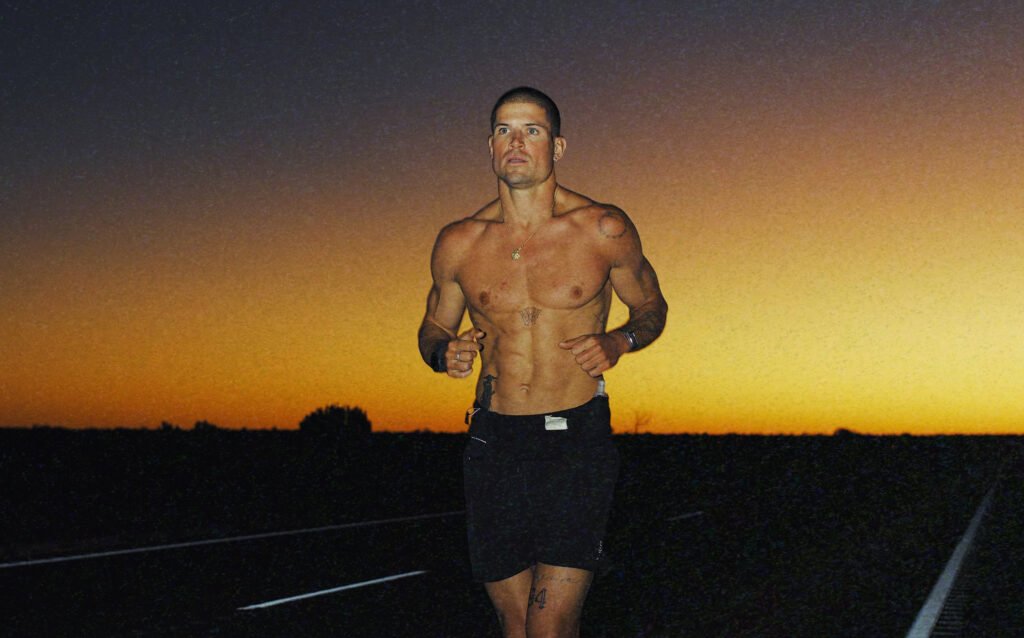
That’s the note runners, statisticians and GPS-watchers are now asking themselves after UK ultrarunner Russ Cook – aka The Hardest Geezer – announced that he had broken a world record in Australia, only to later face significant questioning regarding his GPS data.
Russ Cook, an enduring endurance athlete who just ran the length of Africa, astonished the running world once more by achieving an incredible feat: he ran the entirety of Australia – from the southern tip of Tasmania to the northernmost tip of Cape York, all in 46 days.
That distance – somewhere around 3,800 kilometers (2,361 miles) would see him comfortably ahead of his nearest competitor, the prior record holder, Australian runner, Pat Farmer. Cook’s run reflected the themes of resilience, physical grit and “that the mind gives way before the body ever gives up,” as he would say.
But as the virtual celebrations erupted online and Goodge’s supporters congratulated him on another extreme milestone, questions began to surface – not around his strength, but around his Strava.
Following the announcement by Cook, running data analysts and fans quickly started to explore Cook’s GPS uploads. What they discovered was strange:
- The GPS tracks did not show continuous tracking, there were gaps in time
- Some of the daily uploads looked shorter than the claimed distance
- Key segments did not have verification timestamps
As if that was not enough trouble for Cook, Goodge’s supporting team already explained that the GPS blunders on the report were due to poor satellite signal in remote Outback areas – a reasonable and believable explanation due to the vast amount of signal dead zone in Australia.
However, many of the critiques called into question – given the magnitude of the record – the lack of backup: dual GPS trackers, video logs, signed logs, and third-party verifications should have also been part of standard operating procedures.
Pat Farmer, a household name in Australia, completed the north to south journey Cook is claiming in the early 2000’s – taking more than 60 days to do so! Farmer’s run was an organized charity campaign, documented with official observers, and daily logbooks.
While Farmer did not outright accuse Goodge of tampering with data, his comments are indicative of a wider concern within the endurance community – are the epidemic social media virality and brand storytelling beginning to eclipse rigorous record keeping?
Goodge has brought with him an enormous fan base. For his open, candid personality, his honesty, and of course, his viral videos — from collapsing mid-run, horrific chafing stories, and pep talks to himself while in the desert. Goodge’s runs are as much digital spectacles as physical ones.
But herein lies the dilemna: How do we verify extreme feats in this influencer era of endurance athletes?
Unlike previous records that were monitored by organizations like Guinness and national athletic federations, there is a grey area for many modern challenges: self-defined, self-measured, and self-reported.
Cook’s team did share some tracking data and say they have “hundreds of hours of video evidence” — but have not shared it publicly yet.
In endurance sports, there are no referees at mile 78. There are no finish line cameras at checkpoint 112. There is only trust, data, and willingness to be transparent.
Russ Cook might very well be miles ahead of everyone. Until the data catches up, he might just be a few steps behind public perception.
for more news, visit Spacesportz.com

More Stories
Indian Women’s Cricket Team Shortlisted for Prestigious Laureus Team of the Year Award
ICC Women’s Team Nominated for Prestigious Laureus Sports Award 2026
ICC Women’s Cricket Team Nominated for Prestigious Laureus Award